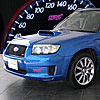The Battle For Japanese Supercar Stardom Begins Anew
Announcements
-
Similar Content
-
Latest Posts
-
By joshuaho96 · Posted
I was under the impression the reason why OEMs are going with solutions like relatively thin "right-sized" cylinder walls with technologies like PTWA and open deck is because they care a lot about whatever marginal knock margin benefits they get from that vs the structural rigidity benefits of a closed deck block and thicker cylinder walls. I also see some weird stuff like plastic inserts in the water jacket around the cylinders to try and equalize cylinder wall temperatures. re: the PRP blocks and heads at the end of the day it's hard to know what is and isn't going to work there, just have to see what the initial buyers say about it. -
Which is why I didn't mention that hardness testing, and specifically mentioned the bore and deck thickness testing. Yeah, not really. The bore temperature will be a lot more even around the top half inch or so, where the material distribution is dominated by the deck, and which is the only place where the bore surface temperature heating any gas in the cylinder is likely to have any effect on detonation. Think about it. Another inch or so down the bore, you might have a hotter spot. The gas there might get a bit hotter, then the piston rises squeezes that gas away from there at high speed and mixes it with other gas from nearby. Instant dilution of the problem. I'd be surprised if it was an issue at any time other than in racing engines or OEM dev engines being run at the ragged edge of tuning. Say what now?
-
By joshuaho96 · Posted
https://dsportmag.com/the-tech/education/engine-tech-material-hardness-testing/ The PRP testing on block hardness I'm not sure how much it actually can be trusted. The thinner cylinder walls on RBs is a bit of a problem vs 2JZ but it really depends on the design goal. Siamesed cylinder bores like a 2JZ cause uneven cylinder wall temps too, which means a bit of distortion induced by that + the hotspot can affect knock margin. Something that actually gives me a bit of pause with the PRP block, whether super thick cylinder walls are going to keep it from being drop-in compatible on an otherwise OEM rebuild. -
Yeah very valid point. I am waiting for one of the other tuners to come back from vacation so he can help me a bit when the cat is installed again. In the meantime I am going to finish up my polishing and ceramic coating that I have started myself. N45 Dr Beasley product is highly recommended for a paint primer / polisher. Using this EXO Gtechniq also for the ceramic but next time might use the light serum before hand also. Looks great.
-
By joshuaho96 · Posted
Running rich in conditions where it shouldn't probably won't do great things for catalytic converter lifespan. I would fix that sooner than later.
-




Recommended Posts
Create an account or sign in to comment
You need to be a member in order to leave a comment
Create an account
Sign up for a new account in our community. It's easy!
Register a new accountSign in
Already have an account? Sign in here.
Sign In Now